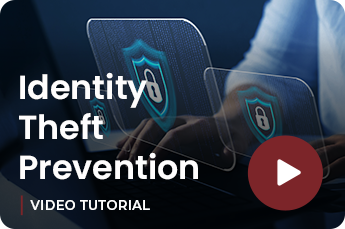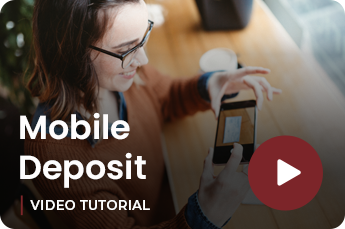Scams are common in today’s world. Peoples State Bank is here to help prevent you from becoming a victim from a scam. If you believe your personal information has been compromised, please call us at 800-252-3137.
Below are different methods and types of scams that are common to try and steal your personal information.
{beginAccordion}
Online Dating Scams
WHAT IS IT? You receive a message from someone wanting to establish a relationship that may evolve into a romance.
SEE THE RED FLAG! They ask you to send money so they can travel to see you, or they desperately need money for an emergency. They may ask you to receive money from others on their behalf and forward it according to their instructions.
BE SMART!
- DO NOT send or pass on any money!
- STOP the conversation.
- DO NOT provide your personal or financial information.
WHERE TO GET HELP:
- Tell a friend or family member.
- File a report or call 1-877-876-2455. Their investigation starts with your report. If you have been targeted or fallen victim to a scam, take action to help yourself and safeguard others.
Home Repair Scams
Someone knocks on your door or calls you. They say they can fix your leaky roof, put in new windows, or install the latest energy-efficient solar panels. They might find you after a flood, windstorm, or other natural disaster. They pressure you to act quickly and might ask you to pay in cash or offer to get you financing.
But here’s what happens next: they run off with your money and never make the repairs. Or they do shoddy repairs that make things worse. Maybe they got you to sign a bad financing agreement that puts your house at risk.
Here’s what to do:
- Stop. Check it out. Before making home repairs, ask for recommendations from people you trust and check that the companies have licenses and insurance. Get three written estimates. Don’t start work until you have reviewed and signed a written contract. And don’t pay by cash or wire transfer.
- Pass on this information on to a friend. You may see through these scams. But chances are, you know someone who could use a friendly reminder.
"You’ve Won!" Scams
You get a call, letter, email, or text saying that you won! Maybe it’s a vacation or cruise, a lottery or a sweepstakes. The person calling about your prize is so excited. They can’t wait for you to get your winnings.
But here’s what happens next. They say there are fees, taxes, or customs duties to pay. Then they ask for your credit card number or bank account information. Or they ask you to pay with cash, gift cards, wire transfers, or cryptocurrency.
If you pay a scammer or share information, you lose. There is no prize. Instead, you get more requests for money, and more false promises that you won big.
Here’s what to do:
- Keep your money — and your information — to yourself. Never share your financial information with someone who contacts you and claims to need it. And never send anyone cash or pay with gift cards, wire transfers, or cryptocurrency.
- Pass this information on to a friend. You probably ignore these kinds of scams when you see or hear them. But you probably know someone who could use a friendly reminder.
Impersonator Scams
You get a call or an email. It might say you’ve won a prize. It might seem to come from a government official. Maybe it seems to be from someone you know — your grandchild, a relative or a friend. Or maybe it’s from someone you feel like you know, but you haven’t met in person — say, a person you met online who you’ve been writing to.
Whatever the story, the request is the same: wire money to pay taxes or fees, or to help someone you care about. But is the person who you think it is? Is there an emergency or a prize? Judging by the complaints to the Federal Trade Commission (FTC), the answer is no. The person calling you is pretending to be someone else.
Here’s what you can do:
- Stop. Check it out — before you wire money to anyone. Call the person, the government agency, or someone else you trust. Get the real story. Then decide what to do. No government agency will ever ask you to wire money.
- Pass this information on to a friend. You may not have gotten one of these calls or emails, but the chances are you know someone who has.
Health Insurance Scams
You get a call or see an ad offering you big discounts on health insurance. Or maybe someone contacts you out of the blue, says they’re from the government, and asks for your Medicare number to issue you a new card.
Scammers follow the news. When it’s Medicare open season, or when health insurance is a big story, scammers get busy contacting people. They want to get your Social Security number, financial account numbers, or insurance information.
Think about these questions. Is that discount insurance plan a good deal? Is that “government official” really from the government? Do you really have to get a new health insurance card? The answer to all three is almost always: No.
Here’s what to do:
- Stop. Check it out. Before you share your information, call Medicare (1-800-MEDICARE). Do some research and check with someone you trust.
- Pass this information on to a friend. You probably know about these scams. But you might know someone who could use a friendly reminder.
Money Making Scams
You see an ad saying you can earn big money, even working from home. Another ad offers help starting an online business — with a proven system to make money. Maybe you uploaded your resume to a job search website, and someone contacts you for an interview — but first, they want your driver’s license and bank account numbers.
If you respond to these opportunities to work from home, you’ll get requests for money — for training or special access — but you’ll never get the job. If you buy the proven system, you’ll get pressure to pay more for extra services. But you won’t get anything that really helps you start a business or make money. And if you give the caller your driver’s license and bank account numbers, they might steal your identity or your money.
Here’s what to do:
- Stop. Check it out. Never pay money to earn money. And don’t share personal information until you’ve done your research. Search online for the company name and the words “review,” “scam,” or “complaint.”
- Pass this information on to a friend. You probably know how to keep your money and information safe. But you may know someone who could use a friendly reminder.
Charity Fraud
Someone contacts you asking for a donation to their charity. It sounds like a group you’ve heard of, it seems real, and you want to help.
But how can you tell what’s a scam? Charity scammers want to get your money quickly. They often pressure you to donate right away. They ask for cash, gift cards, cryptocurrency, or wire transfers. Scammers often refuse to send you information about the charity. They won’t answer questions or explain how the money will be used. They might even lie and say you already made a pledge to donate.
Here’s what to do:
- Take your time. Don’t trust your caller ID. Scammers use technology to make any name or number appear on caller ID. Tell callers to send you information by mail. Do some research. Is the charity real? If callers ask you for cash, gift cards, cryptocurrency, or a wire transfer, it’s a scam.
- Pass this information on to a friend. Probably everyone you know gets charity solicitations. This information could help someone else spot a possible scam.
{endAccordion}











